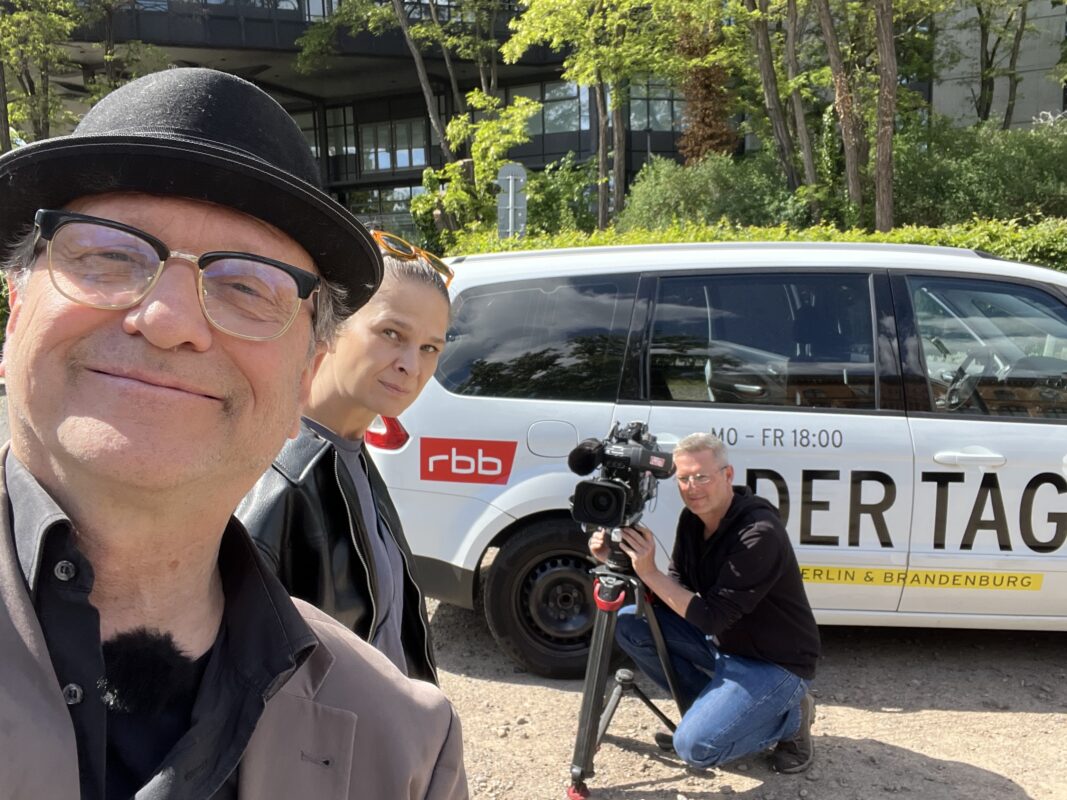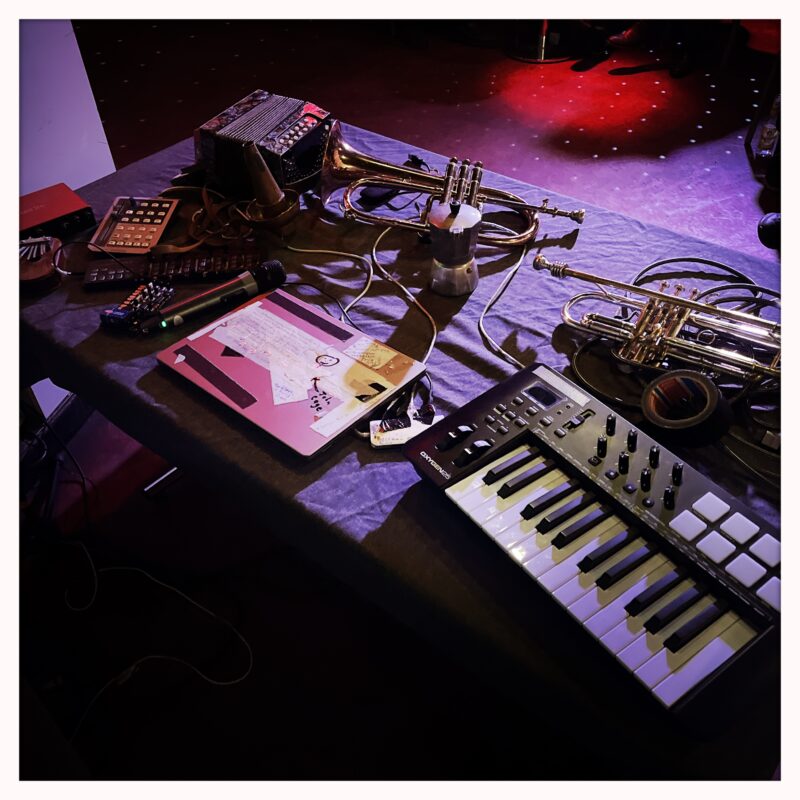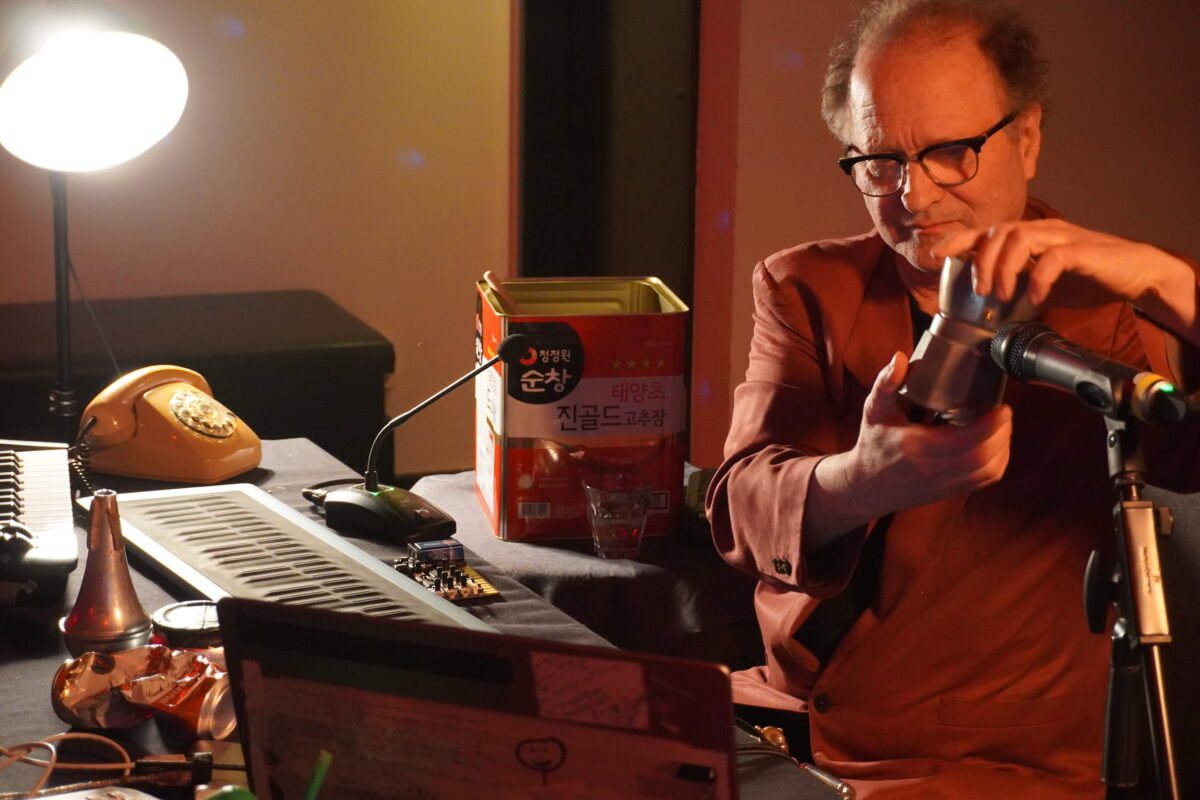In 2022 I was commissioned by the city of Berlin to create a documentary soundwalk about the ‘central park’ of the city. To support the interviews with historians, biologists, park planners, activists, I recorded the sounds of the park -the trains, the nightingales, foxes, skaters, basketball games, wind- for example, and put them in my sampler to compose the music that support the interviews about the park.. Here is the link to Storywalk Gleisdreieck in English, Turkish, and German:
https://www.campus-stadt-natur.de/parks-erfahrungsraeume/park-am-gleisdreieck/storywalk-gleisdreieck
Now I am reversing the process! Rather than focusing on the words of the interviews and using the music as the background, I am putting the soundtrack in the forground and inviting Berlin musiciains to play duets with the park! Here are a short demo of favorite moments.
RBB TV DER TAG FEATURE:
The above video is NOT for commercail use. Only to show work.


RBB TV: DER TAG is documents the Gleisdreieck sound art work. Shown May 23d, 6:53 pm and RBB Mediathek, streamed.
Solo album & live program: Paul Brody’s Poetry Electric
FULL ALBUM ON SPOTIFY BELOW!
Paul Brody’s wild and ambient compositions inspired by the voices of poets he recorded. The poets introduce themselves and often describe the sounds that they feel are important in their poems. These are often included in the soundscape, along with Trumpet, cello, accordion, and noises from objects found on the streets of Berlin. Brody thinks of these compositions as “musical translations” of the poems, which connects the work with an obscure method of translating poetry called homophonic translation. This is when a poem is translated, not by the meaning of the text, but by the sonic quality of the poem.
Gregor Dotzauer: Chief literary editor from Der Tagesspiegel
Prefabricated tracks, samples thrown in and trumpet solos born of the moment, ranging from a squeak to a hymn, make Brody’s performances an experience in their own right. The noisily atmospheric and the distinctively peeling, the melodic and the rhythmic enter into a liaison that gives the lyrics a second life. After centuries of closeness, the contemporary poem and the song have a hard time with each other for many reasons. The way in which Brody’s music takes on the voices of poets from different languages and regions, without completely assimilating them, perhaps there is a future that we no longer dare to hope for.
Two of the writers, Uljana Wolf and Christian Hawkey, were already working with poetry via homophonic translation, or when a poem is translated from the sound of the phrases rather than the meaning of the words. Brody’s compositions and improvisations extend homophonic translation in that he draws inspiration from both the sonic element of the poems well as the expression of the poet’s own voiceThe previous concerts have been full, and the audience has enjoyed an after-show party with ambient music based on the voices of the poets. Vowels expand into long tonal passages, consonants cut into grooves, and syllables are flushed with tonal colors.
ABOUT PAUL BRODY:
From Blixa Bargel to John Zorn, Brody works regularly as a sound artist, composer and trumpeter at the Théâtre de Vidy in Lausanne, the Münchner Kammerspiele, the Berliner Schaubühne, the MC93 Paris, the New York Harlem Opera and the Vienna Burgtheater, among others. He works closely with the music producer John Zorn. His album HINTER ALLEN WORTEN, which features artists such as Clueso, Meret Becker and Jelena Kulijic, was on the best list of the German Record Critics’ Award. Paul Brody was nominated for the Europe Broadcasting Festival and the Vienna International Feature Festival for his work as a sound artist. His sound art works have already been heard on WDR, Deutschlandradio, the Jewish Museum Berlin, the MuseumsQuartier Vienna and at Transmediale Berlin. He is currently writing an opera for the Opéra National de Lorraine in Nancy. He works closely with the theater directors David Marton and Hans-Werner Kroesinger.
SPRACHMELODIE-KLANGFARBENMELODIE (SPEECHMELODY-SOUNDCOLORMELODY)
Writers: Uljana Wolf, Marica Bodrožić, Tomas Venclova, Katharina Ogentoye, Christian Hawkey, Ellen Hinsey, Gregor Dotzauer, Tom Drury, Angélica Freitas, Gregor Hens, Ivana Sajko, Tom Bresemann, Donna Stonecipher, Michael Krüger, Marina Frenk, Orsolya Kalasz, Isaac Goodman, Carolyn Gammon
Tomas Venclova reading Into the Fire
Carolyn Gammon reading The Warble by


Photo: Tom Bresemann